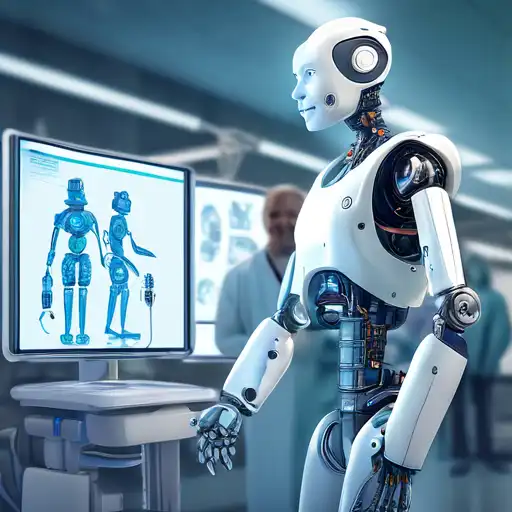The Dawn of Robotics in Healthcare
The integration of robotics into healthcare is revolutionizing the way medical services are delivered. From surgical procedures to patient care, robotics is setting new standards for precision, efficiency, and safety. This transformative technology is not just enhancing existing procedures but is also paving the way for innovative treatments that were once deemed impossible.
Revolutionizing Surgical Procedures
Robotic surgery, a standout application of robotics in healthcare, offers unparalleled precision. Surgeons can perform complex procedures with minimal incisions, reducing patient recovery time and the risk of complications. The da Vinci Surgical System, for example, has become synonymous with robotic-assisted surgery, enabling surgeons to operate with enhanced vision, precision, and control.
Enhancing Patient Care and Rehabilitation
Beyond the operating room, robotics plays a crucial role in patient care and rehabilitation. Robotic exoskeletons are helping patients regain mobility after strokes or spinal cord injuries. Similarly, robotic prosthetics are offering amputees a new lease on life, with devices that mimic natural movement more closely than ever before.
Automating Pharmacy and Logistics
Robotics is also transforming pharmacy and hospital logistics. Automated dispensing systems ensure accurate medication dosing, reducing human error. Meanwhile, robotic carts and drones are being used to transport supplies and samples within hospitals, streamlining operations and freeing up staff to focus on patient care.
The Future of Robotics in Healthcare
The potential of robotics in healthcare is boundless. With advancements in artificial intelligence and machine learning, future robotic systems will be even more autonomous, capable of diagnosing conditions and recommending treatments. As these technologies evolve, they promise to make healthcare more accessible, affordable, and effective for people around the globe.
For more insights into how technology is shaping the future of healthcare, explore our technology trends section.
Challenges and Considerations
Despite its benefits, the adoption of robotics in healthcare faces challenges. High costs and the need for specialized training can limit access to these technologies. Additionally, ethical considerations, such as patient privacy and the delegation of care to machines, must be carefully navigated.
As we stand on the brink of a new era in healthcare, robotics is undeniably a game changer. By embracing these innovations, the medical community can enhance patient outcomes, improve efficiency, and open the door to treatments that were once beyond our reach.
